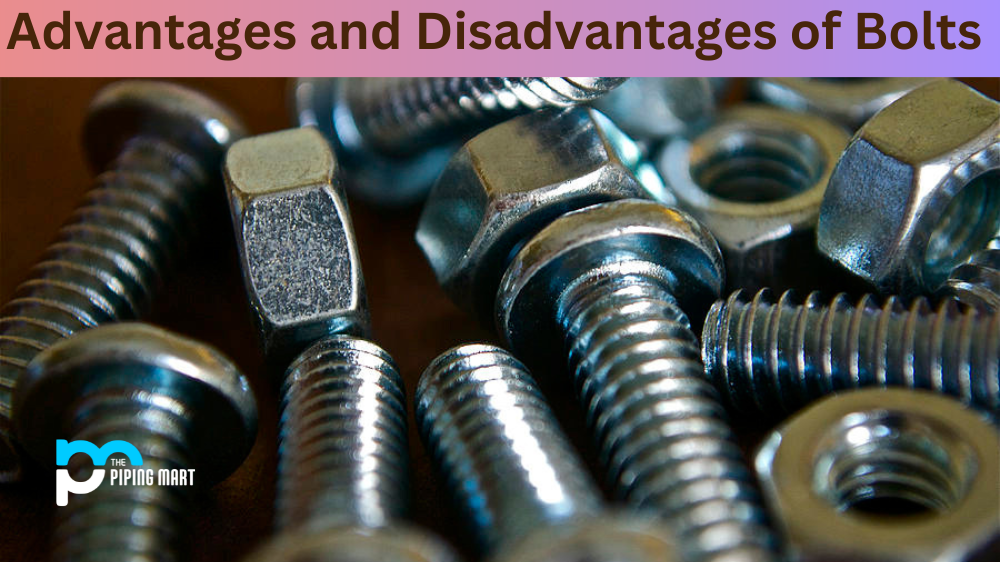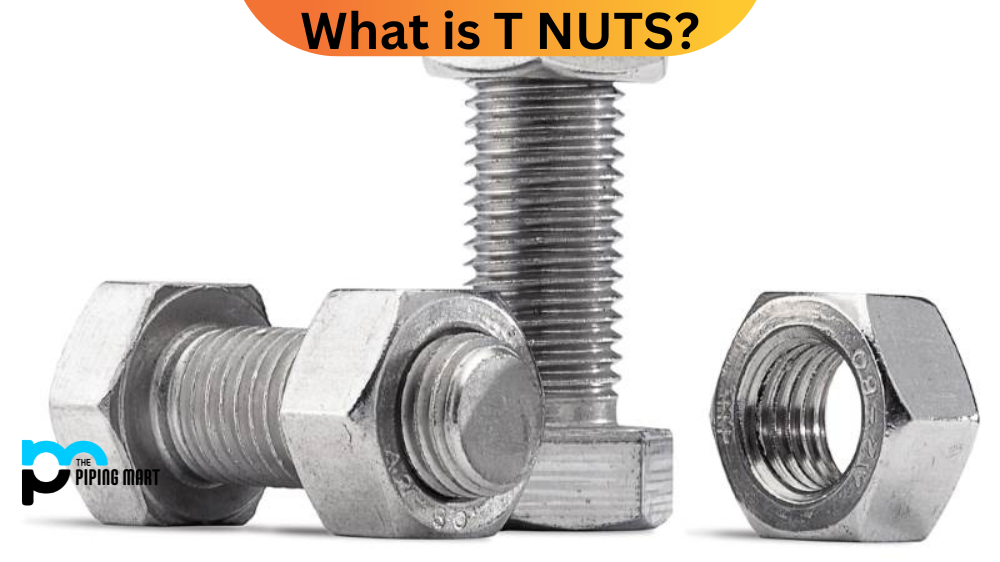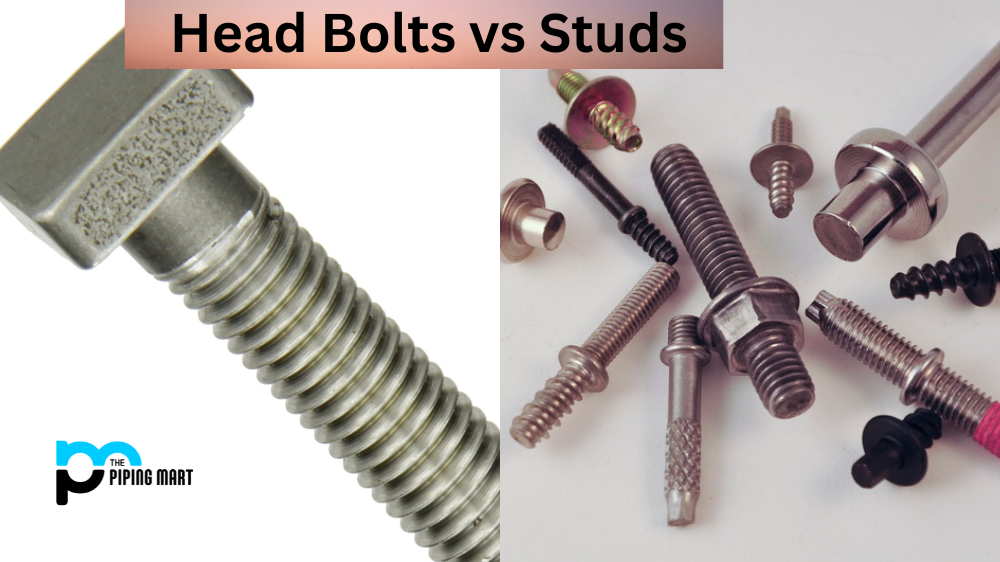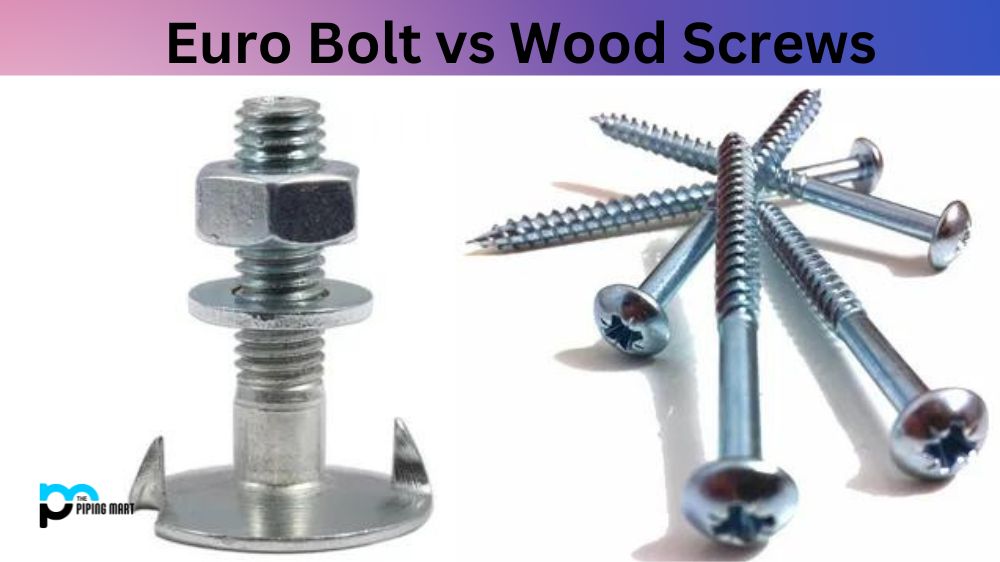Bolts are fasteners that are used to connect two pieces of metal or other materials together. They are an important part of many everyday objects that we use, from cars and buildings to furniture and appliances. While bolts offer many advantages, there are also some disadvantages associated with them that should be considered before using them in a project. Let’s take a look at the pros and cons of bolts.
5 Advantages of Bolts
One of the main advantages of using bolts is that they are incredibly strong and reliable. Because they are so strong, they can often withstand much more pressure than other types of fasteners, such as nails or screws. This makes them ideal for use in applications where strength and durability are important, such as construction projects or automotive repairs. Additionally, bolts come in various sizes and lengths, so you can find one that fits your specific needs.
Bolts are also relatively easy to install compared to other fasteners since all you need is a wrench or socket wrench to tighten them. This makes them great for DIY projects since you don’t need any special tools or skills to get the job done quickly and easily. Additionally, bolts have a simple design which makes them easy to remove when necessary without damaging the materials they were attached to.
Stronger Joints
One of the primary advantages of using bolts is that they create stronger joints than other types of fasteners. This is because bolts are designed to be tightened to a specific torque, which creates a more secure joint. Additionally, bolts are less likely to loosen over time, which can often be an issue with other types of fasteners.
Increased Safety
Another advantage of using bolts is that they can help to increase safety. This is because bolts are less likely to fail than other types of fasteners, which can often come loose over time. Additionally, bolts are less likely to cause damage to the surrounding area if they do fail, as they will simply snap instead of shatter.
Easier to Install
Bolts are also generally easier to install than other types of fasteners. This is because they do not require any special tools or equipment for installation. Additionally, bolts can be installed quickly and easily, even by those with limited experience.
More aesthetically pleasing
Bolts are also more aesthetically pleasing than other types of fasteners. This is because they are available in a variety of finishes, such as zinc-plated or stainless steel. Additionally, bolts can be color coded to match the surrounding area, which can add a touch of style to any project.
Reusable
Another advantage of using bolts is that they are reusable. This means that they can be removed and reused as needed, which can save time and money in the long run.
Disadvantages of Bolts
Despite their strength and versatility, there are some downsides associated with using bolts in certain applications. For one thing, they require more time and effort to install compared to other fasteners like screws or nails. Additionally, if not installed properly, they can become loose over time which may cause safety issues down the road if not addressed promptly. Furthermore, different types of bolts may require specialized tools for installation, which can add cost and complexity to a project.
They Can Be Difficult to Remove
One of the primary disadvantages of bolts is that they can be difficult to remove. This is because the head of the bolt is usually recessed into the material, making it difficult to get a grip on it. Additionally, the threads on the bolt can become damaged, making it even more difficult to remove.
They Can Be Difficult to Install
Another disadvantage of bolts is that they can be difficult to install. This is because the holes that the bolts need to be inserted into must be precisely drilled, and the threads on the bolts need to be aligned correctly with the threads in the holes. If either of these things is not done correctly, then the bolt will not go in all the way or will be very difficult to screw in.
They Can loosen Overtime.
Another problem with bolts is that they can loosen over time. This is because the threads on both the bolt and in the hole can wear down, which causes them to no longer fit as snugly as they did when they were first installed. Additionally, vibrations from moving parts can cause bolts to loosen over time.
They Require Regular Maintenance
Another disadvantage of bolts is that they require regular maintenance. This is because bolts need to be tightened periodically in order to keep them from loosening. Additionally, damaged or worn bolts need to be replaced in order to keep them from causing problems.
They Can Be Expensive
Another downside of bolts is that they can be expensive. This is because high-quality bolts are made from materials such as stainless steel or titanium, which can add to their cost. Additionally, bolts come in a variety of sizes and lengths, which can also add to their cost.
Conclusion:
Overall, while there are some drawbacks associated with using bolts in certain applications, they still offer many advantages that make them an attractive option for many projects requiring strong connections between two pieces of material. Whether it’s for home repairs or construction projects, bolts provide strength, reliability, and ease of installation that make them a great choice for most scenarios where fastening is required! If you’re looking for an effective way to join two pieces together securely, then consider using bolts!
Sakshee is a talented blogger, with a particular focus on the Business and Metal Industry. She is passionate about sharing her insights on various metal products and helping professionals to make a better decisions.




